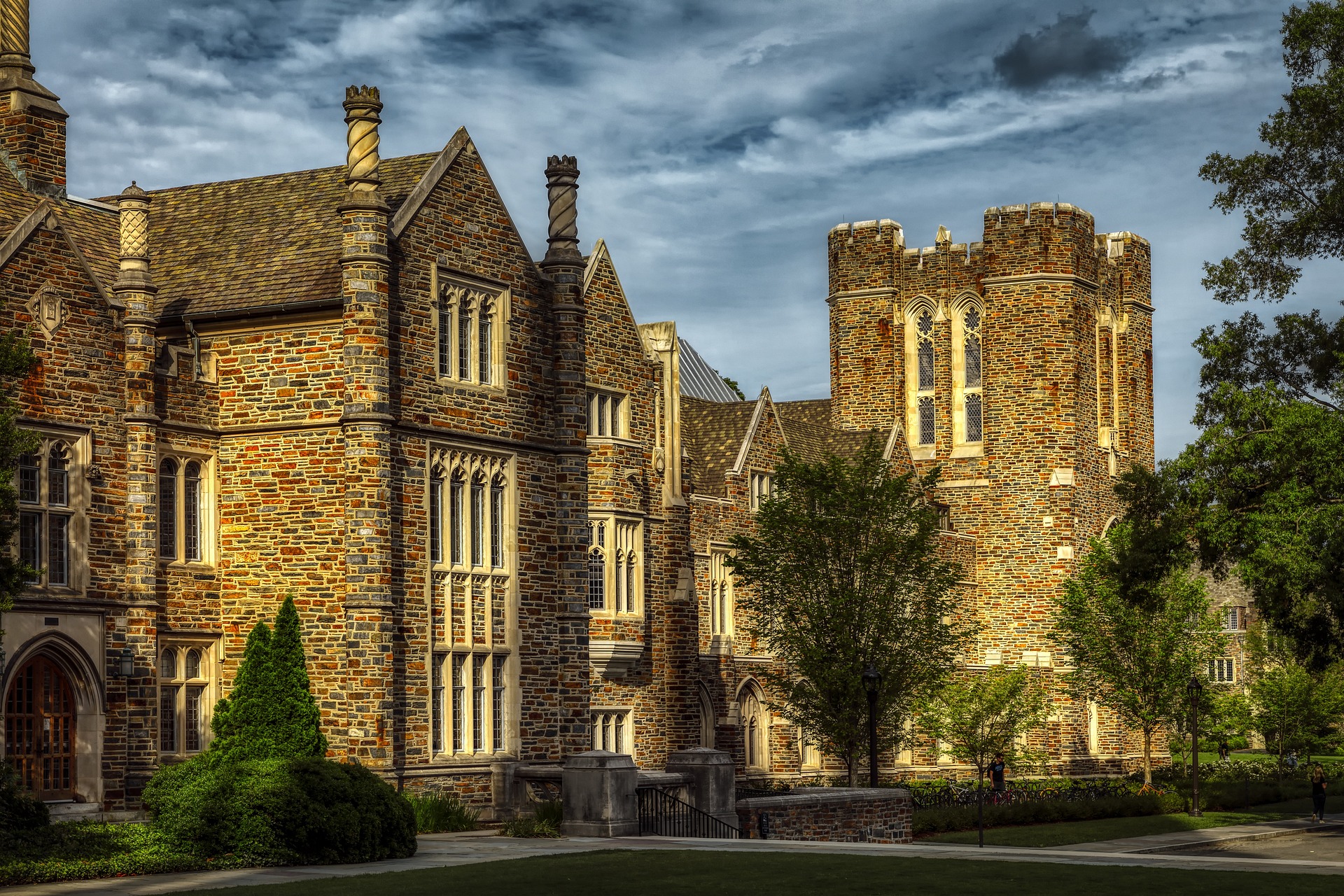Duke Law School Acceptance Rate 2023: A Measure of Elite Legal Education?

Duke Law School is among the most prestigious law schools in the United States. Thousands of students apply to Duke Law School every year, hoping to be accepted. However, Duke Law School’s acceptance rate is notoriously low, which begs the question: is Duke Law School acceptance rate a reflection of elite legal education?
According to recent statistics, Duke Law School’s acceptance rate is around 14.4%, making it one of the most competitive law schools in the country. The Office of Admissions received 6,250 applications for the incoming class of 2025, and only 225 students will be admitted. While Duke Law School’s acceptance rate is relatively high compared to other top law schools, such as Yale Law School, which has an acceptance rate of around 6.9.0%, it is still a highly selective institution.
Many believe Duke Law School’s low acceptance rate reflects the school’s commitment to providing an elite legal education. Duke Law School is known for its rigorous curriculum, excellent faculty, and exceptional resources, which attract some of the country’s brightest and most talented law students. As a result, Duke Law School is consistently ranked among the top law schools in the United States.
Duke Law School Acceptance Rate: What It Means

Duke Law School is one of the most prestigious law schools in the United States, and its acceptance rate reflects its elite legal education. This section will explore the Duke Law School acceptance rate and how it compares to other top law schools.
Understanding Acceptance Rates
The acceptance rate is the percentage of applicants offered admission to a particular school. At Duke Law School, the acceptance rate for the class of 2025 is 14.45%, with 282 students finally enrolling. This means that out of 6,250 applicants, only a small fraction were accepted.
Duke Law School’s low acceptance rate indicates that the school is highly selective and only admits the most qualified applicants. The admissions committee examines various factors, including academic performance, LSAT scores, work experience, and extracurricular activities.
How Duke Law School Acceptance Rate Compares to Other Top Law Schools
Duke Law School’s acceptance rate is lower than many other top law schools nationwide. For example, Harvard Law School’s acceptance rate for the class of 2024 was 12.3%, while Yale Law School’s was 4.12%. However, Duke Law School’s acceptance rate is higher than other top law schools, such as Stanford Law School, which had an acceptance rate of 6.28%.
Here is a table comparing Duke Law School’s acceptance rate to other top law schools:
| Law School | Acceptance Rate |
|---|---|
| Harvard Law School | 12.9% |
| Yale Law School | 9.7% |
| Stanford Law School | 8.7% |
| Columbia Law School | 14.8% |
| NYU School of Law | 20.3% |
While Duke Law School’s acceptance rate is not the lowest among top law schools, it is still highly competitive. The school’s admission process is rigorous; only the most qualified applicants are accepted.
Duke Law School’s acceptance rate reflects its elite legal education and the highly selective admissions process. While the acceptance rate is not the lowest among top law schools, it is still highly competitive, and only the most qualified applicants are accepted.
Factors That Affect Acceptance Rates

Regarding law school admissions, several factors can influence the acceptance rate. Duke Law School is no exception; understanding these factors can help prospective students better prepare for the application process.
Academic Requirements
Academic requirements are often the first hurdle that applicants must clear. Duke Law School has a reputation for being one of the most competitive law schools in the nation, and as such, it has high academic standards. The school considers several factors when evaluating applicants, including undergraduate GPA, LSAT scores, and the rigor of the applicant’s undergraduate program.
Application Process
The application process can also play a significant role in the acceptance rate. Duke Law School receives thousands of applications annually, and the admissions committee carefully evaluates each. The committee considers various factors, including the applicant’s statement, letters of recommendation, and extracurricular activities. Applicants who demonstrate a strong commitment to the law and a passion for legal advocacy may have an advantage in the admissions process.
Diversity and Inclusion
Diversity and inclusion are also important factors that can influence the acceptance rate. Duke Law School is committed to building a diverse and inclusive community, and the admissions committee actively seeks applicants from various backgrounds. The school values applicants who can contribute to the diversity of the student body and who have a demonstrated commitment to social justice and equity.
Geographic Location
Geographic location can also play a role in the acceptance rate. Duke Law School is located in Durham, North Carolina, strongly connecting to the surrounding community. Applicants who have ties to the region or can demonstrate a commitment to serving the local community’s needs may have an advantage in the admissions process.
In summary, the acceptance rate at Duke Law School is influenced by various factors, including academic requirements, the application process, diversity and inclusion, and geographic location. Prospective students who understand these factors and demonstrate a strong commitment to the law and legal advocacy may have a better chance of gaining admission to this prestigious institution.
Elite Legal Education at Duke Law School
Duke Law School is one of the most prestigious law schools in the United States, known for its rigorous academic programs and excellent faculty. The school’s acceptance rate is 14.45%, making it one of the most competitive law schools in the nation. However, the school’s acceptance rate is not the only factor that makes it a top-tier institution.
Faculty and Curriculum
Duke Law School’s faculty comprises renowned legal scholars and practitioners who are leaders in their respective fields. They bring a wealth of knowledge and experience to the classroom, providing students with a comprehensive understanding of the law. The school’s curriculum is also designed to provide students with a well-rounded legal education. Students take courses in various legal subjects, including constitutional law, contracts, criminal law, property law, and torts.
Experiential Learning Opportunities
Duke Law School offers a variety of experiential learning opportunities that allow students to apply their knowledge in real-world settings. The school’s clinics allow students to work on actual cases under the supervision of experienced attorneys. The school also offers a variety of externship programs that allow students to work in government agencies, non-profit organizations, and private law firms.
Career Outcomes
Duke Law School has an excellent track record of producing successful graduates. According to the school’s website, 94% of the class of 2020 was employed within 10 months of graduation, with a median starting salary of $180,000. Graduates of Duke Law School have gone on to work in various legal fields, including corporate law, public interest law, and academia.
Duke Law School’s acceptance rate is just one factor contributing to its reputation as an elite legal institution. The school’s faculty, curriculum, experiential learning opportunities, and career outcomes are all important factors that make it a top-tier law school.
Final Thoughts on Duke Law School Acceptance Rate
Duke Law School’s acceptance rate is one of the lowest in the country, making it a highly competitive law school to gain admission to. With an acceptance rate of 14.45%, Duke Law School is one of the most selective schools in the nation. Despite this, Duke Law School is consistently ranked as one of the top law schools in the country, with an excellent reputation for providing an elite legal education.
While Duke Law School’s acceptance rate undoubtedly reflects its rigorous academic standards, it is not the only factor that makes it an elite institution. Duke Law School’s faculty is composed of some of the most respected legal scholars in the country, and its curriculum is designed to provide students with a comprehensive legal education that prepares them for success in a wide range of legal careers.
Moreover, Duke Law School’s commitment to diversity and inclusion is another factor that sets it apart from other law schools. The school’s student body is composed of individuals from a wide range of backgrounds, and the school has taken significant steps to ensure that all students feel welcome and supported.
In short, while Duke Law School’s acceptance rate is undoubtedly an indicator of its elite status, it is only one factor contributing to its reputation as one of the top law schools in the country. With its outstanding faculty, comprehensive curriculum, and commitment to diversity and inclusion, Duke Law School is a top choice for students seeking an elite legal education.



